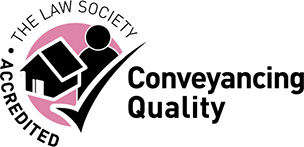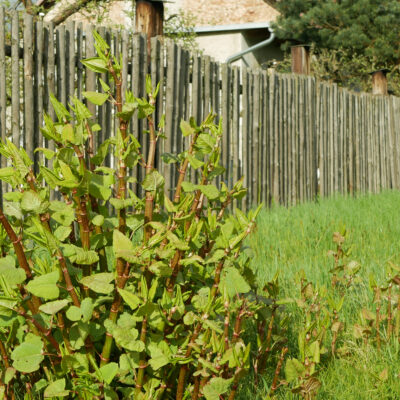Risks For Homeowners With Japanese Knotweed (And What You Should Do)
Japanese Knotweed has been present in Britain since the 19th century and has been labeled as one of the most invasive plants by the UK Government. Its hardy and resilient qualities have become a nightmare for homeowners looking to sell their affected properties thanks to the impact that this species has on property value and the difficulties around eradicating it from the land.
In this blog, we’re going to cover the key elements around buying/selling a house affected by Japanese Knotweed and what you need to consider if you’re looking to buy or sell a house that has fallen victim to it.
What is Japanese Knotweed?
But first, what exactly is Japanese Knotweed and how can you identify it?
Fallopia japonica (or more commonly known as Japanese Knotweed), is a perennial weed which is native to Japan. A key feature of this plant is its bamboo-like canes that can reach an impressive 7ft tall by early summer. The dense stems and broad leaves of this plants means it is highly adapted to dominate competing plants and crops and spread fiercely in surrounding areas.
Initially, when the plant starts to grow in early springtime, it will present reddish-purple shoots which then darken as the plant grows and their broad, heart-shaped leaves are presented. It can be quite easy to mistake Japanese Knotweed for other plants so it’s important to get professional input if you suspect that you may have Japanese Knotweed present on your property.
Why is it such a concern for homeowners?
Damage to properties
Whilst some people can exaggerate the impact from this plant, there is a risk that it will exploit structural weaknesses such as cracks in concrete or external structures and has the ability to invade nearby drains causing problematic blockages which result in knock-on effects to nearby properties. The weed has an extensive root system which can grow rapidly, measuring up to 3m deep by 7m wide when the plant is fully grown.
Resilience to removal
It is extremely difficult to kill and fully eradicate this plant. General methods such as burying, non-professional excavation, burning or treating with over-the-counter weed killer products are not successful and tend to make things worse as the plant is known to “fight-back” and increase growth rate following the attempt to destroy it.
Things to consider before buying a house with Japanese Knotweed
Whilst there is a lot of negativity and warning associated with Japanese Knotweed, it doesn’t have to be a complete deal breaker for those looking to buy a property (so long as certain elements have been met).
However, there are additional restrictions and things to address if you are looking to proceed which can make the whole process more difficult, and therefore potentially more costly.
Restrictions for getting a mortgage
The presence of Japanese Knotweed doesn’t only impact the seller, it also adds another level of difficulty for the buyer. From reliable treatment costs to additional requirements from mortgage lenders, the ongoing list of requirements for a property infested with this invasive species can be disheartening.
Mortgage lenders are unlikely to complete on an affected property unless there is an approved, professional treatment and removal procedure in place with an insurance-backed guarantee, so there is no way of avoiding the problem.
How much does a professional survey cost?
Generally, a professional Japanese Knotweed survey will cost anywhere between £200 – £300 + VAT. There is a duty of care for residential surveyors for both the homebuyer and mortgage lender and they are expected to be vigilant to identify the presence of Japanese Knotweed on a property (even if the homeowner has tried to hide it). Whilst the surveyor won’t be able to physically dig up the ground, they should be highly aware of what to look for and the many different ways that people may try to hide it.
New detection method for Japanese Knotweed
There is now a new method of Japanese Knotweed detection that not everyone is familiar with, Japanese Knotweed Detection Dogs.
In 2020, Mick and Mack became the first dogs to be trained to specifically detect the invasive species in a much faster and more accurate process than current methods. The pair of fox red labradors were trained for Environet UK and will alert their trainer to the presence of Japanese Knotweed by standing completely still over the affected site.
With a 99% accuracy rate, this is now the most reliable method available for identifying and assessing the presence of Japanese Knotweed on a property.
Restrictions to selling your home
Having an infestation of any kind on a property can make it more difficult to sell, regardless of the severity and previous treatment methods. There is no denying that potential buyers will be much more inclined to proceed with a property that has not been impacted rather than have to worry about ongoing management or treatment as well as the financial requirements to have professional services completed as well as the worry of having to deal with the issue again if it ever comes to selling the property in the future.
How much does it devalue a property?
Unfortunately, there is no ‘one size fits all’ amount of how much a property will be devalued thanks to the presence of Japanese Knotweed however, there is a free tool available so that you can forecast roughly how much your property’s value will be impacted by. The JK-VIM calculator is an indicative, free tool for residential properties.
We must note that this tool is only for indicative purposes and cannot be used as an alternative to obtaining professional advice from an RICS Registered source.
RICS 2022 guidance update for Japanese Knotweed
Following the update by RICS to the guidance notes for surveyors when dealing with Japanese Knotweed, there was a lot of confusion around what these changes actually meant for homeowners and potential buyers.
One key catalyst was the various misreports released by the press that raised some alarming statements which simply weren’t true. You can read some of the key points, here.
When does Japanese Knotweed become a legal issue?
It is not illegal to have Japanese Knotweed present on your property but the government has outlined a number of regulations to manage the growth and spread of this invasive species to help protect both homeowners and buyers.
If there is a presence of the weed on your property and it then proceeds to spread beyond the boundaries of your property, this will be deemed as encroachment and you could face prosecution. More details can be found, here.
In a recent article by the Evening Standard, a property seller was left facing a £200,000 court bill after being found to have wrongly denied the presence of Japanese Knotweed on the property. It was discovered that during the sale, the homeowner had answered “no” on a written form when asked if he was aware of the property being affected by Japanese Knotweed. Despite the owner claiming to be unable to see the weed and therefore denying any knowledge of its presence, the judge later heard that the Knotweed had been treated with herbicide previously.
Do you need support with buying or selling a property affected by Japanese Knotweed?
If you’re unsure about the rules surrounding properties with Japanese Knotweed or are looking for support on deductions of property values when the weed is present, then our expert team is here to help. Contact the Sittingbourne property law solicitors at Ratcliffes by calling 01795 358961 or completing the online form.


